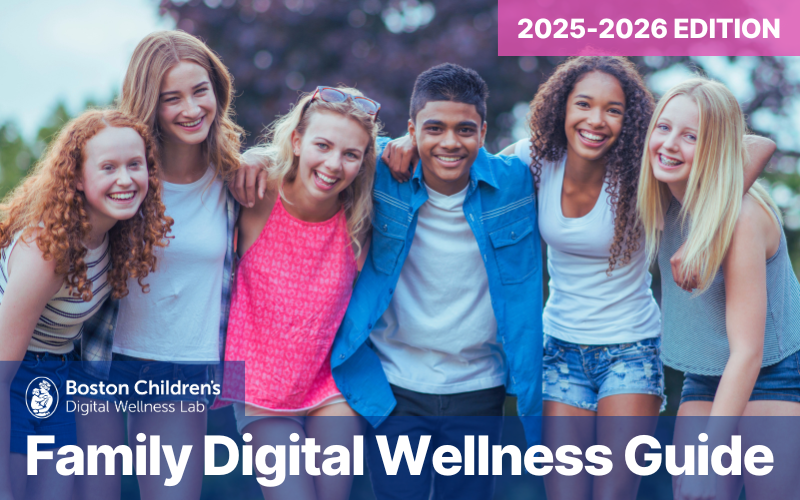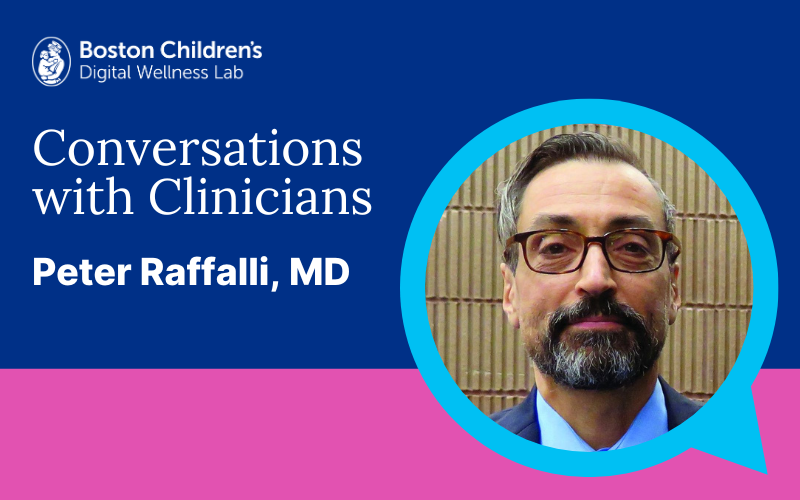Peter Raffalli, MD
Assistant Professor, Harvard Medical School
Child Neurologist, Boston Children’s Hospital
Director, Bullying and Cyberbullying Advocacy Collaborative Program, Boston Children’s Hospital
What does a “day in the life” look like for you?
I spend my days doing patient care in the child neurology clinic and working as the director of the Bullying and Cyberbullying Prevention and Advocacy Collaborative Program (BACPAC), both at Boston Children’s Hospital.
What led you to this work?
I’ve had a lifelong interest in biology and science, which led to my desire to find a profession that requires compassionate care of children with disabilities.
What are the greatest opportunities you see for kids growing up in a digitally-saturated world?
The access to information is vastly different in the digital age compared to prior. Also, the opportunity to explore particular areas of interest in depth, whether for academic study, self-education or in pursuit of career options, is infinitely better than before the internet was established. Finally, communication between people and organizations is faster and more efficient than ever before.
What are the greatest challenges you see for kids growing up in a digitally-saturated world?
The greatest challenges are: distinguishing between misinformation and evidence-based facts, the constant barrage of political propaganda, cyber-bullying and abusive communications, and the potential for compromise of personal information and identity theft.
I am a believer in the “WAIT UNTIL EIGHTH” rule which advises not providing smart phones to kids/teens until at least 8th grade and then access to social media not until high school.
How would you change or design technology and/or media to be healthier for kids across the developmental span?
Reduce the use of social media as a gossip and teen drama machine. Much of the communication on social media for teens is talking about others, including all too often disparaging remarks about peers. Frequent use of social media has been correlated with increased incidence of depression in teens, a number of whom then display suicidal ideation.
What guidance or advice do you have for parents and other caregivers to help kids to build and maintain healthy behaviors around digital media and technology?
I am a believer in the “WAIT UNTIL EIGHTH” rule which advises not providing smart phones to kids/teens until at least 8th grade and then access to social media not until high school. If parents feel they want their child to have a cell phone well before that time for safety reasons, then I advise they get them a flip phone. That way the child can contact their parent without giving the child internet access that can be hard for the parent to monitor fully. It also helps to reduce the risk of cyberbullying. Finally, once the decision to give the child a smart phone is made, the parent should establish the prerequisite that the parent will have access to all content on that device.
Here at the Lab, we welcome different viewpoints and perspectives. However, the opinions and ideas expressed here do not necessarily represent the views, research, or recommendations of the Digital Wellness Lab, Boston Children’s Hospital, or affiliates.








